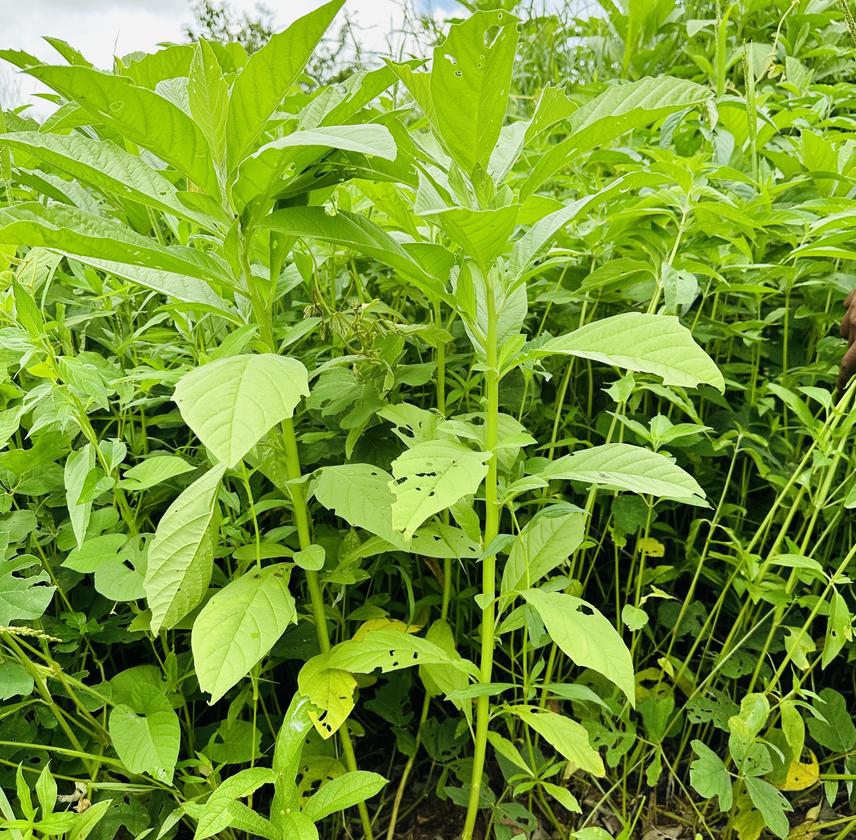Upendo Richard Ngoda
The central objective of this research project is to conduct a comprehensive investigation into the distribution patterns and assess both the ecological and socioeconomic impacts of Astripomoea hyoscyamoides, commonly known as Kongwa weed, within the Dodoma region of central Tanzania. The research specifically targets the prevalence of Kongwa weed, aiming to explore its broad effect on local ecosystems and the livelihoods of communities in the area.

Kongwa weed. © Upendo Richard.
To achieve this goal, the project employs a systematic approach that utilizes line transects for ground surveys. These surveys play a pivotal role in estimating and mapping the distribution of Kongwa weed across diverse locations within Dodoma. Complementing the ground surveys, the research strategically implements experimental plots to dig deeper into understanding the characteristics and behavior of Kongwa weed and its biocontrol. The data collected from these experimental plots undergo meticulous analysis, enabling the drawing of insightful reasoning regarding the correlation between the weed and its impact on both the local ecosystem, the livelihoods of communities residing in the affected areas and the use of bio-herbicides to control the weed.
The study is structured around several specific objectives:
1. Mapping Distribution: Undertake a comprehensive mapping of Astripomoea hyoscyamoides within the Dodoma region, aiming to identify the various locations where the weed is prevalent.
2. Biodiversity Impact: Determine the ecological impact of Astripomoea hyoscyamoides on biodiversity, examining changes in the composition and structure of native flora and fauna within affected areas.
3. Socioeconomic Assessment: Assess the socioeconomic impact of Astripomoea hyoscyamoides on the livelihoods of farmers and pastoralists, considering factors such as agricultural productivity, land use, and community well-being.
4. Control Methods Comparison: Compare the effectiveness of biological and cultural control methods for managing Astripomoea hyoscyamoides, with the aim of identifying sustainable and efficient strategies.
The anticipated outcomes of this study are of paramount importance for the effective management of Kongwa weed. By providing a comprehensive understanding of its distribution and associated effects, the research aims to offer valuable insights that can be translated into targeted interventions. Ultimately, the goal is to mitigate potential adverse impacts on farmers and pastoralists in central Tanzania, fostering resilience and sustainability in the face of ecological challenges in the region.